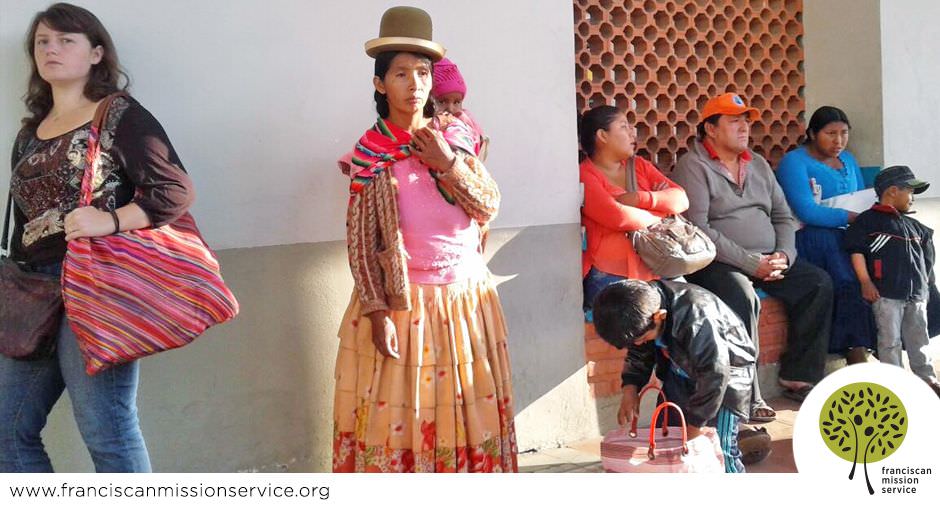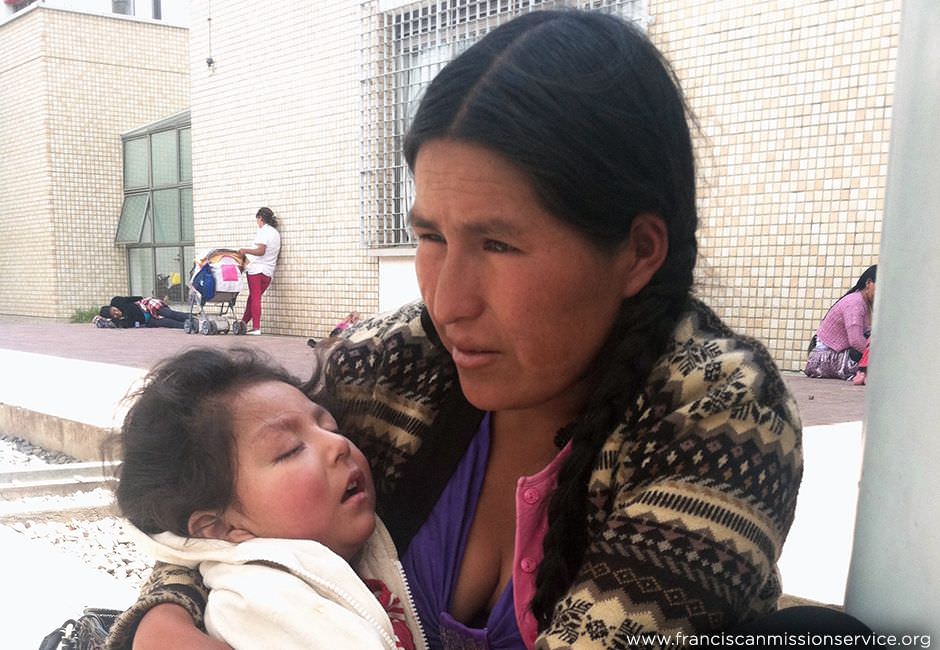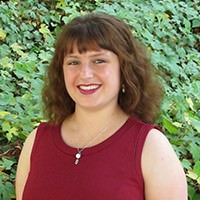Be Not Afraid: Waiting With Them

Editor’s Note: Missioner Allison Dethlefs shares how fear of being an intruder and of not knowing enough about the Bolivian medical system led to a new understanding of what it means to walk with others through complex and scary situations.
I stood on the corner feeling utterly helpless. I was supposed to be meeting four different families to take the parents and their children (each of whom had different disabilities) to a doctor’s office I had never been to in order to ask an array of questions I didn’t understand on the patients’ behalf. After an hour of walking back and forth between the clinic and the meet-up point to collect one family after another, we were all there, but the doctor was not.
Sensing that we were in for a wait, I took out a little notebook from my purse and pulled out a couple of pages.
“Do you want to learn how to make a paper crane?” I asked Diana, an adorable 10-year-old girl with severe scoliosis and Brittle Bone Disease. She nodded eagerly and before long I was teaching all of the kids how to make an array of paper creations.
Finally, the doctor arrived and all of the waiting patients pushed inwards. Name after name was called, and then, “Diana Flores…”
Diana’s father stood rapidly and the three of us entered the spacious office. The doctor told us to sit and asked us why we had come in. Nervously, I opened my little notebook to the pages where I had rapidly scribbled all of the questions and requests that I had been told to present for each child. I began to explain as best as I could, when the doctor cut me off—
“Why did you bring her to Doctora Campero?” she asked brusquely. “She’s not a pediatric neurologist. You need to bring your patients somewhere else.”
“And these labs are fine, but I don’t see what you want me to do about them.” She dove into a complicated medical explanation of Diana’s condition, and the doctors we should be seeing and the tests we should be taking. I tried my best to write things down, but most of it flew right over my head. Her father sat there silently, also at a loss.
So it went for the rest of the patients’ visits, each leaving me feeling smaller, more incompetent, and more frustrated than the last. Worst of all was when the doctor explained to me, one girl’s mother, and the other patients in the room how the mother’s little two-year-old daughter was lucky to have survived her surgery, was never going to get much better, and probably wasn’t going to last long. Seeing the anguish in the mother’s face, I nearly sobbed right then and there.
At last it ended. I walked each family to their bus stop and sent them off. Then I plodded home feeling like a complete failure.
Since then I have gone on dozens of visits with patients to a variety of hospitals, clinics, and labs. While that fear of inadequacy – of not knowing enough, or being enough, or understanding enough, or helping enough – has not gone away, over time I have come to see it in a much different light.
I now realize that these experiences are valuable opportunities to see things from the perspective of those living on the margins, to truly step into the shoes of these families. When I walk into those posh doctors’ offices, I stand at the patients’ sides. I experience the same confusion, frustration, and helplessness that they do. And this chance to practice true solidarity, vulnerability, and accompaniment has driven me to growth I never could have imagined and opened the doors to relationships I never could have expected. What a beautiful reminder it has been for me of how God can use our biggest insecurities, weaknesses, and doubts to create spaces for transformation and unimaginable blessing.
Reflection Questions: How are you being called to accompany others on their journey? How can you walk a mile in someone else’s shoes this week?
Tagged in:



